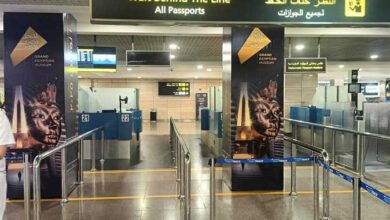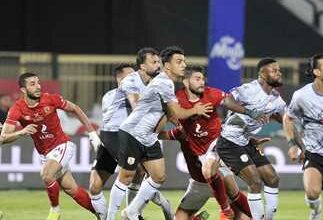Security, street lighting, traffic control, garbage collection and recycling: all services that typically belong exclusively to the realm of government. Unless you live in the Zamalek neighborhood of Cairo, where a group called the Zamalek Guardians has taken on the task of assisting not only with safety, but also acting as a liaison between the community and the government to deal with quality of life issues.
Inspired by Operation Red Nose in Canada, which provides rides for potential drunken drivers during the holiday season, the Zamalek Guardians are an all-volunteer group of Zamalek residents who have banded together to address community issues. Some of their recent work included providing security for the Egypt Now festival, which Minister of Planning and International Cooperation Fayza Abouelnaga attended without her bodyguard, and offering security, logistical and organizational help at polling sites during the referendum on constitutional amendments in March.
During the 18-day uprising, popular committees were formed in neighborhoods throughout Cairo. Sometimes armed with nothing more than sticks or other blunt weapons, they provided security and kept intruders out after police disappeared from the streets.
“All of a sudden, no one was doing anything,” says Zamalek Guardians member Mohamed Abdel Hady. “We had to do something.”
Many members of these committees have gone back to their normal routines, though the security situation has not yet returned to pre-revolution levels. The Zamalek Guardians, though, are actively trying to expand their role in the community and recruit new members.
The group began with a Facebook page. This allowed the members, all longtime Zamalek residents, to keep in touch easily and also offered community members opportunities to post their concerns.
“The only topics that are not allowed are politics, religion and football,” says Shoukry Boutros, the self-described uncle of the group. “These types of posts are removed by the admins,” he says, because the Guardians do not want their group to be aligned with any particular ideology.
During the uprising, the Guardians started with the basics: standing guard on street corners and directing traffic. “It was amazing,” says Shoukry of the community’s patience, gratefulness, and willingness to take directives from other community members. “We were really surprised.”
Since then, they have started several other security initiatives, including a hotline that residents can call to request help or file a report, and a service that provides car rides to women who have an emergency that requires them to go out late at night or get stuck somewhere and need a ride back to Zamalek. The cars are sent with a male “bodyguard,” as well as a female member of the group, to make the women feel comfortable.
Some members are licensed to be armed and others carry tasers, but Abdel Hady stressed that they only use force defensively, which is a rare occurrence, in accordance with their motto, “Prevention is better than confrontation.”
None of the Guardians have received any professional training in security or law enforcement, but this is something that they hope to do in the future along with providing classes and training in areas such as self-defense to residents.
The Guardians also assist with other non-emergency safety issues such as getting the appropriate government agency to repair broken streetlights. They say that because there is no effective system for reporting such issues directly, the Guardians have formed relationships with officials and to present to them the community's concerns.
Both the police and other government agencies have been receptive to the Guardians’ efforts, something practically unheard of before the revolution. “This spirit is a new phenomenon, that people want to work together,” says Boutros. “The revolution, which was the driving force behind our formation, has taught us to be one hand.”
The Guardians are trying to capitalize on this newfound openness by pushing for other initiatives, such as a recycling program, and have organized themselves into various committees and departments to tackle such initiatives as well as work on public relations and advertising.
“It can’t go back to the way it was before,” says founding member Mohamed Fikry. “The Tahrir people will not let it.”
The Guardians say they have representatives in the tent city in Tahrir Square, who keep them up to date on what is being discussed there.
“We are working on making Zamalek a role model for all of Cairo,” says Fikry.
Many Zamalek residents have spent time abroad and have been exposed to other cultures, where regulations governing concepts like seatbelt use and littering are the norm, the Guardians say. They also tend to be more educated and financially stable, and therefore have more time and energy to dedicate to such efforts. Although the differences between an upscale area like Zamalek and less affluent neighborhoods present numerous challenges, Fikry says the Guardians are up to the task.
“People just need a good example,” says Boutros. “The old regime didn’t give them a chance to learn.”
Plans for an education campaign are in the works and it will include advertising as well as volunteer outreach in schools. While the challenge of changing the culture and the way people live their lives is enormous, it is not insurmountable. The education campaign will include a component aimed at convincing people that laws and regulations are good for them.
Some of the volunteers have faced resistance from school administrations. Boutros likens this resistance and the general criticism of these types of initiatives to the false argument that Egypt is not ready for democracy.
“What have you been doing for the past 50 years to prepare people for democracy? Nothing. You’ve repressed them,” he says of the critics, advocating the notion that, if allowed, people will embrace these types of initiatives instead of reject them as intrusive.
“It’s as though for the last 50 years the people lived in a rented, furnished flat where the government was the owner and they were guests,” he says. “All of that changed overnight and now the people are the owners.”




